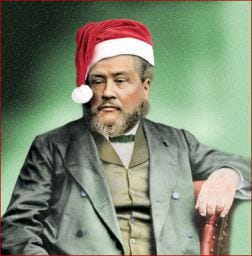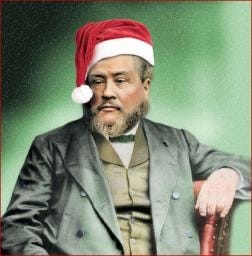Kings may, for various reasons, visit their subjects; but they do not think of taking upon themselves their poverty, their sickness, or their sorrow. They could not if they would, and they would not if they could; but our Divine Lord, when He came hither, took upon Him our flesh.
He did not come to earth just to pay us a passing visit, but He dwelt among us in this world of sin and sorrow. This great Prince entered our abode—what if I call it this hut and hovel?—wherein our poor humanity finds its home for a season. This little planet of ours was made to burn with a superior light among its sister stars while the Creator sojourned here in human form.
Our Lord so visited us as to become our Surety, our Substitute, our Ransom. He hath borne our griefs, and carried our sorrows, and the Lord hath laid upon Him the iniquity of us all. This was wonderful tender mercy on His part; it excels all human conception and language. If, for the first time, you had heard of the visit of the incarnate God to this world, you would be struck with a wonder which would last throughout all eternity, that God Himself should really condescend to such a deed as this. This is the heart of the Gospel, the incomparable fact of the Incarnation of the Son of God, His dwelling upon the earth, and His presentation of Himself as a sacrifice unto God.
— C. H. Spurgeon





“He did not come to earth just to pay us a passing visit, but He dwelt among us in this world of sin and sorrow.” What comfort to be reminded of our Savior’s interest in creation to become our representative on the cross and the only one who could satisfied the perfect demands of God our Father. Soli Deo Gloria!